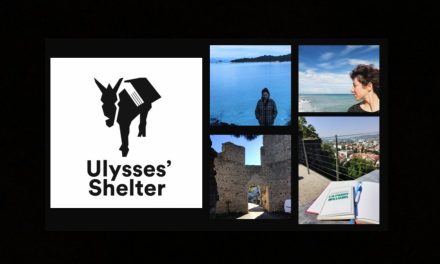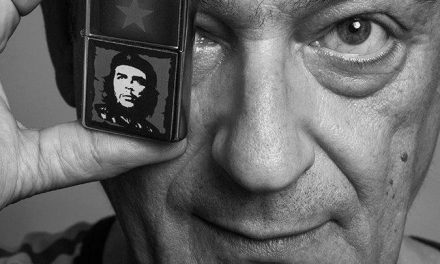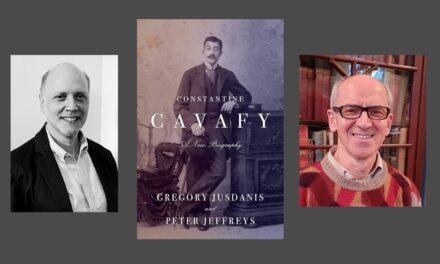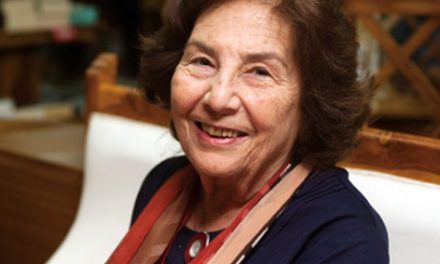Lina Rokou was born in Athens, but grew up in Corfu. She studied at the Department of Communication, Media and Culture of Panteion University. She works as a journalist. Her novel End of Hunger (Ikaros, 2018) was included in the four novels selected by Pen Greece as part of Pen International’s Know Her Words project. Her major influences are Corfu and that episode of Pink Panther in which a vacuum cleaner sucked up everything, including itself.
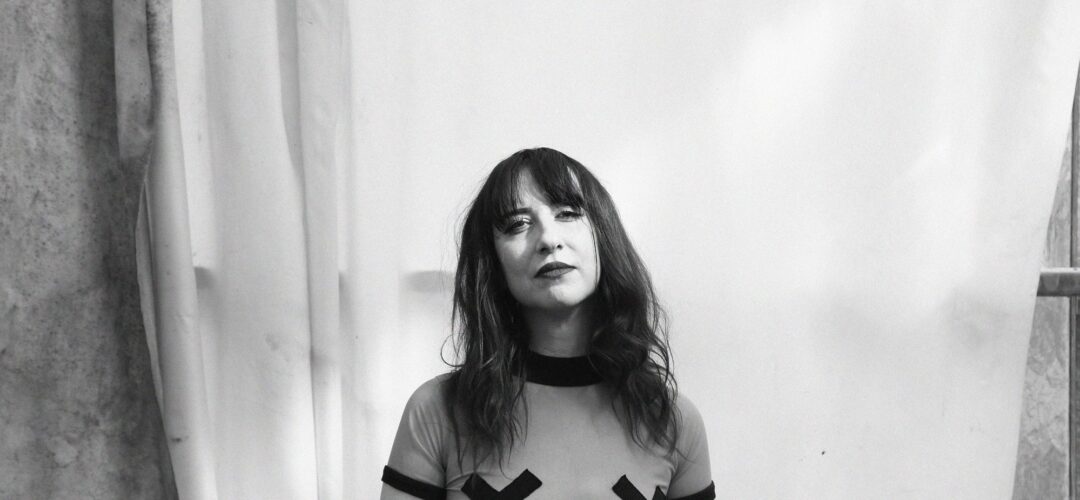
Your second writing venture λάθος κεφάλι [Head gone wrong] was recently published by nissos. Tell us a few things about the book.
This is my second novel after End of Hunger (Ikaros, 2018), which was included in the four novels selected by Pen Greece as part of Pen International’s Know Her Words project for the promotion of young women’s literary voices from around the world.
In Head gone wrong we meet Karina, a first-time writer facing writer’s block and Pavlos M, an established writer, who lives in isolation at home. The two will live together following his invitation, an invitation that comes with the proposal to share stories and confess other experiences, dreams, feelings, thoughts to each other, in order to write their next book together. On this journey of coexistence, they are accompanied by Rat, an all-black cat with an all-white head, who never meows. Other characters – including Jeff Bush, who was sucked into the earth, a young female ardent reader and a dead poet – will appear to tell their own stories in turn.
This plot constitutes the vehicle to talk about something that is of great concern: how narrative – whether spoken or written – is one of the most important tools we have to connect with others. We narrate to reveal ourselves, to manage to remain vulnerable towards another human being, to reveal ourselves through the linguistic code and reach that magical point where we don’t need it anymore, but only to stand exposed but full of truth towards each other, expecting to connect despite our differences through the assumption that we all have the same starting point: the need to coexist.
“The story unfolds through various forms of narration creating a labyrinth where reality, memory, imagination become one body, the body of myth”. What purpose does your non-linear narrative flow serve? Where does a story begin and where does it end? Does every narration constitute a new event?
Painter Chronis Botsoglou told me in an interview I had with him in 2014: “I wanted to paint Kavvadias. I vividly remembered the tattoos he had on his arms, one on each, but the tattoo he had in the middle didn’t come very clearly to mind. I remembered something like a snake, but I wasn’t very sure. So, I called his wife, Theano, to ask her and she said that he didn’t have anything like that on his body. It was a false memory. At one point he had asked me to make a design for him to make a tattoo and maybe I had thought about the snake but in the end, we never did. So, my mind constructed a memory”, and added, “Memory is the way we experience things”.
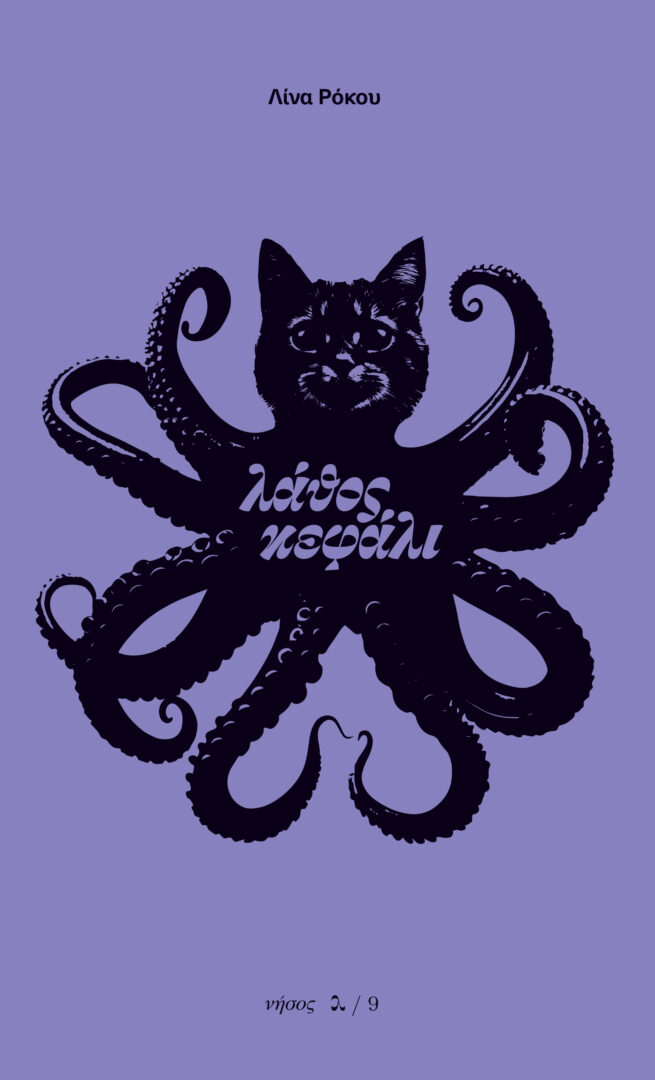
Τhis is how I let my writing work, associatively at first but then with great care so that the text comes out of me as an imprint of my whole being without cutting it up into “little fields” of logic, imagination, emotion, memories, experiences. That is why in the chapter titled “Swinging” (Last section/Together) I write: ‘There is no need to take things in order. No path is a straight line; and if it is, then a terrible mistake occurs. Therefore, it is not important for me to tell you about my first swing. For now, it is enough for you to know that it happened, and had it not happened, then my second swing would have been the first. That is why I am telling you: Don’t get confused and don’t try to find how things started, for the beginning has many tails and even more heads.” Just as every narrative is a new event, every new reading is a new, enriched book; so my greatest joy is hearing how readers interpret my book or how they narrate it to others.
How does your work converse with its surrounding environment? Could literature be used to imagine what could be radically different realities?
I draw all my stimuli from the surrounding world; it just doesn’t necessarily have to be tangible or proximate. After all, one could say that this is what literature does, it gives substance to the imagination. Books can be vortices, they can suck you in and by entering them you can live in a parallel universe, timeless and eternal at the same time. Literature is human magic, shapes on pieces of paper that equate to homelands.
Books are living organisms, they breathe with you, they speak inside your head, they take you by the hand and together you build a new space, unique to each reader. They are the apotheosis of imagination, they are the raging thought that transcends rules and boundaries, that blossoms perfuming every cell of your body. Literature proves to us that reality and truth are not necessarily identical.
What about language? What role does language play in your writings?
I am grateful to be connected to the world through language. When I write, I feel lucky that I can choose the words I want, put them in order and in this way express what I have inside me. What I think is perhaps most important is that the language of my writing has a certain rhythm, pulsing as it flows. As long as I do so, I am satisfied with my writing and at the same time I feel that I have respected language and made use, to the best of my ability, of its living essence.
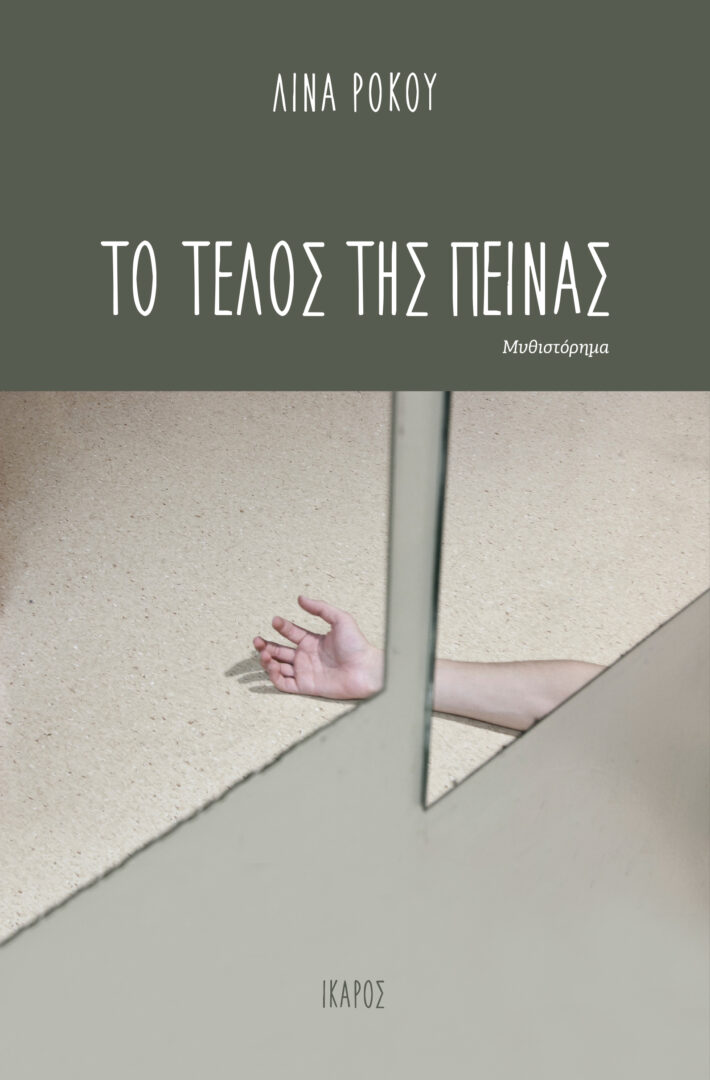
For me, writing literature is a vast, boundless glade in which I can run and play freely as I wish, without borders and prohibitions. Where does the writer meet the journalist and the performer in your work?
In inspiration, since I draw elements from my involvement in both journalism and performance – two completely different fields – that help me broaden the horizons of my writing. In journalism, inspiration comes mainly from the great people I have had the honour to associate with through interviews. Performance has opened a door into a world deeply focused on the now of life rather than the newsworthiness of current affairs. Performance taught me the value of exposure not as an egocentric movement of “look at me” but as a political act in the sense of active participation in the present time. This freed me from self-censorship and led me to a writerly boldness that I believe allows me to act by writing in the way I wish.
Ηοw do contemporary writers converse with global literary trends? Where does the national/local meet the universal?
The local meets the global as the personal meets the collective through a common pool from which we all draw without losing the characteristics of local cultures. This is the eternal challenge for an artist, who is called upon to articulate his/her unique voice to meet other unique voices without betraying either his/her own identity or those that surround him/her.
*Interview by Athina Rossoglou
INTRO PHOTO by Aspa Koulira
TAGS: LITERATURE & BOOKS | READING GREECE

